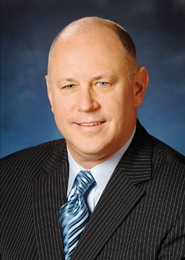(Bloomberg) — A sweeping blueprint designed by the U.S. Securities and Exchange Commission to reduce conflicts of interest in the stock market won support from leaders of exchanges and large money managers.
Chief executives from the New York Stock Exchange to institutional investors including Citadel LLC and Invesco Ltd. backed the commissions call to rein in some high-frequency trading and make secretive trading venues known as dark pools disclose more about how they work. The SEC also should move forward with a plan to require that brokers provide investors with detailed maps of how their orders are filled, the executives said yesterday at a hearing of the Senate Banking Committee.

The testimony signaled industry support for SEC Chair Mary Jo Whites agenda even as some market participants have pressed the agency to do more. White has said the agency would consider new rules in the coming months as it weighs claims that high- frequency traders enjoy systematic advantages over long-term investors.
Weve lost track of getting the best price for a company thats trying to raise capital and an investor that would like to meet a company, said Jeffrey Sprecher, CEO of NYSE-owner Intercontinental Exchange Inc. I think if we just look at holistic practices to do the right thing for investors, well land on the right public policy.
Flash Boys
The Senate hearing is the latest congressional response to Michael Lewiss book, Flash Boys, which said stock markets are plagued by conflicts of interest that help high-frequency traders and harm slower investors such as mutual fund managers. A different Senate committee headed by Michigan Democrat Carl Levin held a hearing last month that probed retail brokers practice of selling customer orders to wholesalers such as Citadel.
High-frequency traders came under criticism today from Invesco and Senator Elizabeth Warren, a Massachusetts Democrat who questioned whether their short-term, low-risk trading strategies promote liquidity or are just skimming money off the top of these trades.
We know that there are a lot of people who pretend to be market makers, but its unclear to us whether this is really just trading volume or if its real liquidity, said Kevin Cronin, global head of trading at Invesco.
The SEC has taken the right steps by announcing an experiment to boost trading in the shares of smaller public companies and reviewing how its own regulations may have distorted market behavior, said Senator Tim Johnson, a South Dakota Democrat and the banking panels chairman. The regulator needs to show urgent and thorough attention to measures that would improve trust in the markets, he said.
Dark Pools
Dark pools, which White has suggested have become too opaque, also came under criticism. White called last month for having dark pools disclose more about how they treat subscribers and route orders. Late last month, New York Attorney General Eric Schneiderman sued Barclays Plc over claims that its executives lied to customers about the banks dark pool while secretly cozying up to high-speed traders.
We should level the playing field between the exchanges and the dark pools, said Citadel CEO Kenneth C. Griffin. And the dark pools that compete on the merits should have vibrant businesses.
BATS Global Markets Inc. CEO Joseph P. Ratterman told lawmakers that while dark pools should become more transparent, they play a necessary role for large investors who want to execute large orders without moving prices too much.
Transparency around the pricing and fairness among participants in those dark pools would go a long way to taking away some of the mystique about a dark pool, he said.




